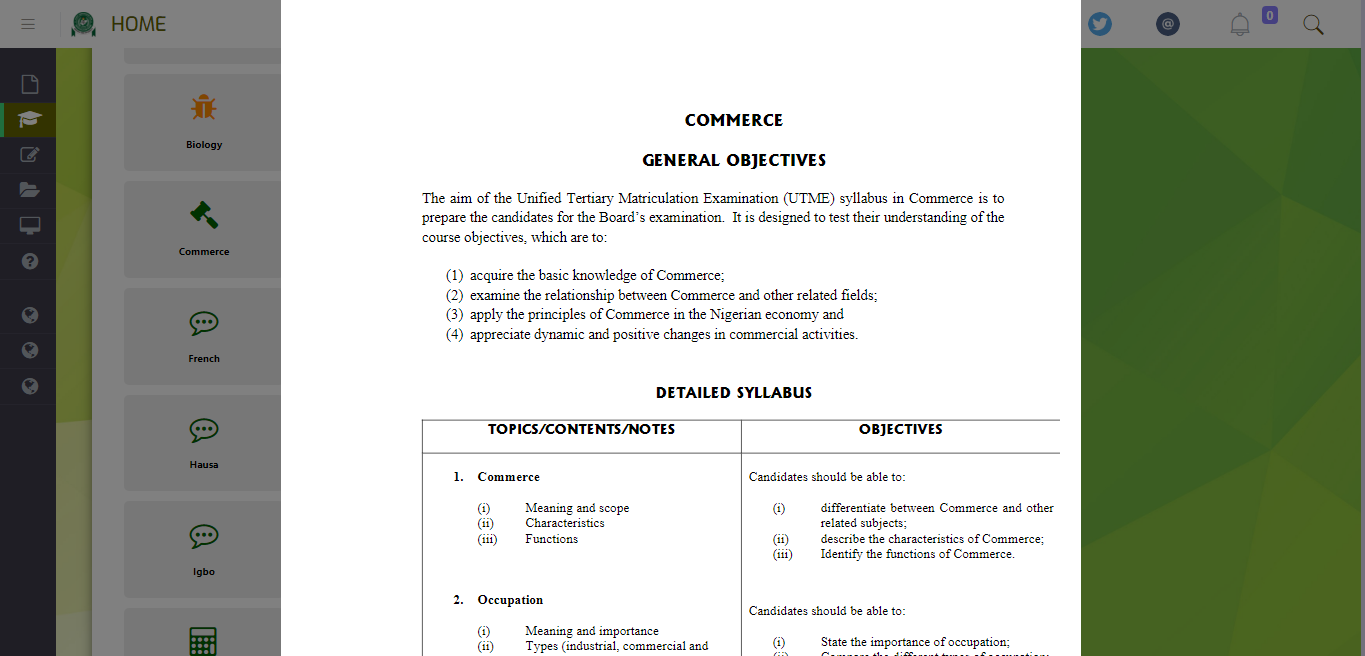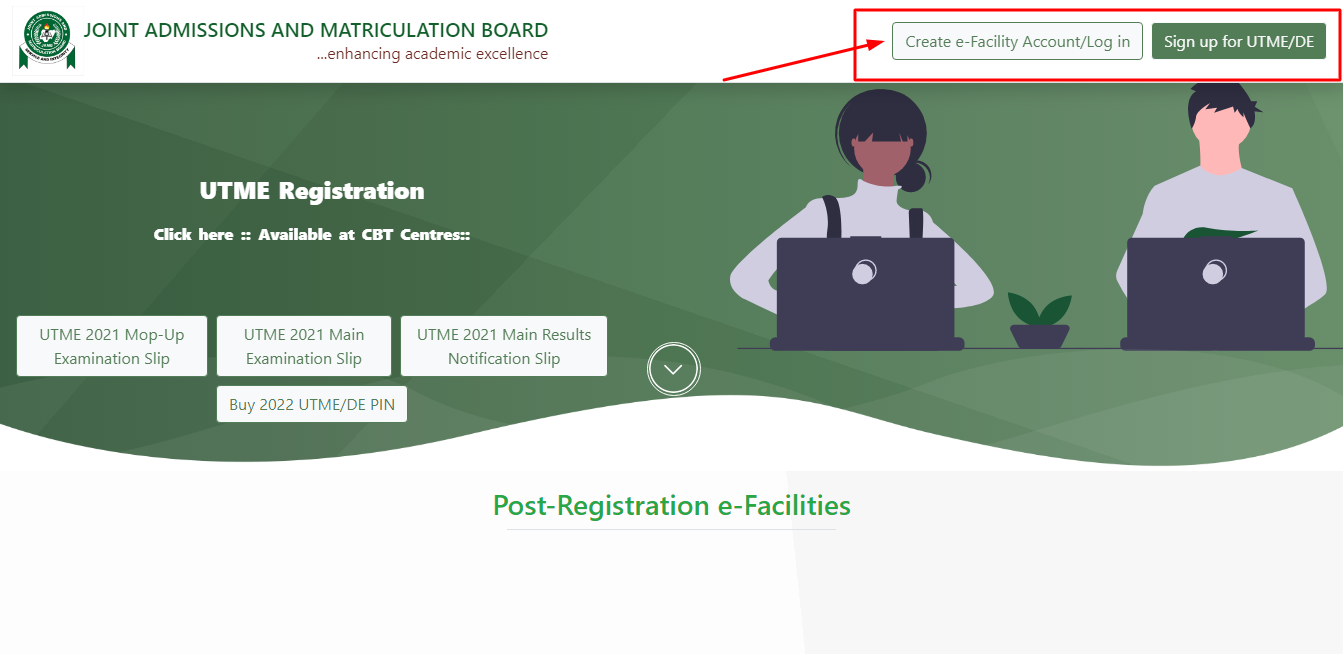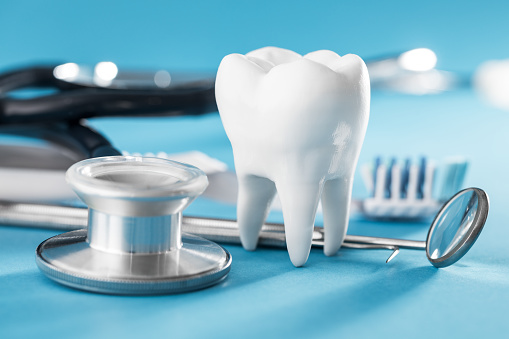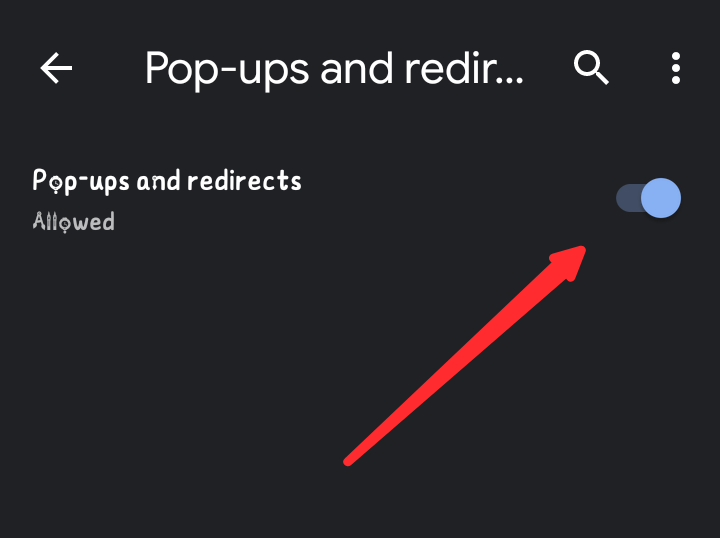JAMB Commerce Syllabus 2024/2025: Is JAMB Syllabus for Commerce out for this year’s JAMB?, When will JAMB Commerce syllabus be out?, JAMB Commerce Syllabus 2024, What topics do JAMB set questions from Commerce the most in JAMB?, what is the most repeated topic in JAMB’s Commerce?, download JAMB Commerce Syllabus pdf.
Welcome SAVANT! to another exciting episode of my “JAMB Doctor Series“, here I will provide you with the official topics recognize by JAMB, which JAMB expect you are a guru in before entering the hall to sit for your JAMB Commerce Exam. STAY TUNED!
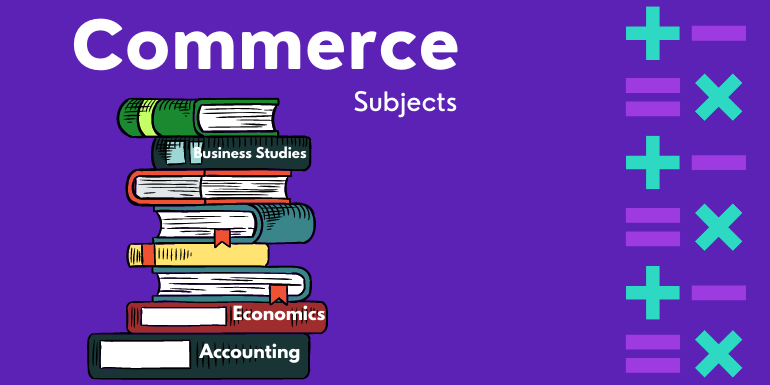
Have you ever wondered where you can find the topics for Commerce JAMB normally asks or the most repeated topics or question in JAMB Commerce? then you are a step away from finding your answer.
The short answer to the above question is “JAMB Syllabus”, in fact, JAMB Syllabus is the only expo you will be getting as you prepare for 2024/2025 UTME Exams, this syllabus contains area of concentrations and topics your questions will be asked from.
Read Also: WAEC Marking Scheme For All subjects: Grading System
ARE YOU ON TELEGRAM? Subscribe To My Telegram Channel For Frequent Updates & Guide by clicking the "SUBSCRIBE NOW" button below.
Any smart students would cherish this piece (Syllabus) and make effective use of it, the fact that you are searching for this now, simply means you are in the right direction. you should see my top notch guide on How To Pass JAMB 2024/2025 With High Score (300+).
For the sake of students who do not fully understand what JAMB syllabus is, I will give a brief explanation about this and then provide you with the relevant topics and area of concentration as provided in JAMB Commerce Syllabus
I will also make the pdf available for download at the end of this write up… Enjoy!
What Is JAMB Commerce Syllabus?

JAMB Syllabus for Commerce is a collection of topics JAMB expects students to be well grounded in before they sit for their Commerce exam. If Commerce is one of the subjects you will sit for in JAMB, then you need this syllabus.
This syllabus were actually compiled by JAMB, so it is something you can rely on.
The aim of the Unified Tertiary Examination Board Syllabus in Commerce is to guide candidates in their preparation for the Board’s exam.
Advantages of Using JAMB Commerce Syllabus To Prepare?
Of course using JAMB syllabus to prepare for Commerce in JAMB has its perks, some of these advantages includes…
- Expose you to topics you never taught were important
- You begin to see how JAMB thinks, and also expose you to what you should expects in different topics
- On the syllabus is also contained recommended textbooks, using JAMB recommended textbooks is key
With these I hope you will grab the opportunity of making good use of JAMB Commerce Syllabus I will be providing you with shortly…
Read also: JAMB Profile 2024/2025: How To Create & Access It (All To Know)
JAMB Commerce Syllabus
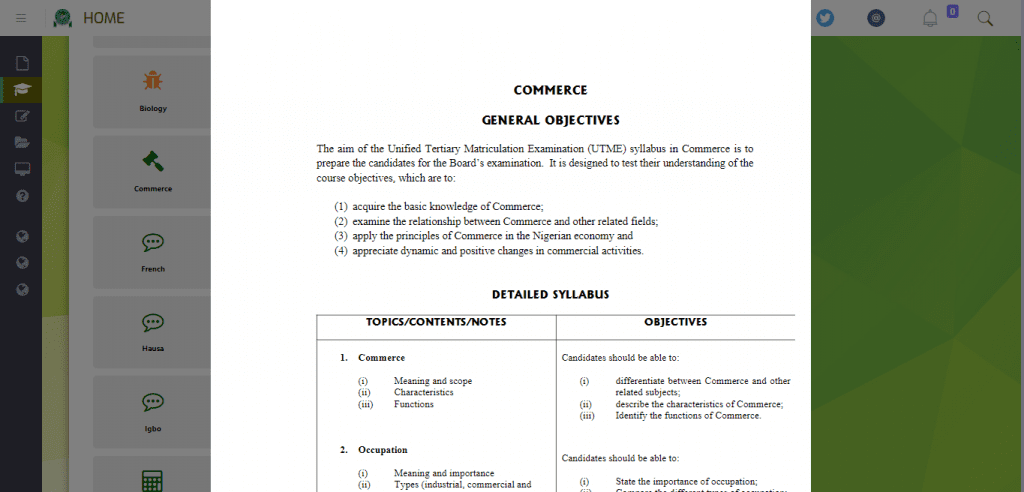
JAMB Commerce syllabus is designed to evaluate your ability to:
- acquire the basic knowledge of Commerce;
- examine the relationship between Commerce and other related fields;
- apply the principles of Commerce in the Nigerian economy and
- appreciate dynamic and positive changes in commercial activities.
Download your copy of the syllabus here👇
Below is a detailed list of JAMB Commerce syllabus/Content
1. Commerce
TOPICS:
- Meaning and scope
- Characteristics
- Functions
Study Objectives:
Candidates should be able to:
- differentiate between Commerce and other related subjects;
- describe the characteristics of Commerce;
- Identify the functions of Commerce
2. Occupation
TOPICS:
- Meaning and importance
- Types (industrial, commercial, and services)
- Factors that determine choice of occupation
Study Objectives:
Candidates should be able to:
- State the importance of occupation;
- Compare the different types of occupation;
- Identify the factors determining the choice of occupation.
3. Production
TOPICS:
- Factors, characteristics, and rewards (land, labour, capital, and entrepreneur)
- Division of Labour and specialization
- Types (primary, secondary and tertiary)
Study Objectives:
Candidates should be able to:
- identify the Factors of Production and their rewards;
- distinguish between Division of Labour and Specialization;
- classify the types of production.
4. Trade
TOPICS:
- Home Trade
- Retail trade:
– Types of retailers
– Functions of retailers
– Factors to be considered in setting up retail trade
– Trends in retailing (branding, self -service, vending machines, the use of luncheon, fuel vouchers, etc)
– Advantages and disadvantages of retailers - Wholesale trade:
– Types of wholesalers (merchant, agent, general, etc)
– Functions of wholesalers
– Advantages and disadvantages of wholesalers
- Retail trade:
- Foreign trade
- Basic issues in foreign trade (balance of trade, balance of payments, and counter trade)
- Procedures and documents used in export, import, and entreport trade
- Barriers to international trade
- Role of Customs and Excise Authority, Ports Authority, etc in foreign trade
Study Objectives:
You should be able to:
- compare the various types of retailers;
- identify the functions of retailers;
- highlight the factors in setting up retail trade;
- classify modern retailing practices;
- identify the advantages and disadvantages of retail business;
- classify the types of wholesalers;
- discuss the functions of wholesalers;
- outline the merits and demerits of the middleman;
- analyse the basic issues in foreign trade;
- explain the procedures and documents used in foreign trade;
- identify the barriers to international trade;
- appraise the role of government agencies in foreign trade
5. Purchase and Sale of Goods
TOPICS:
- Procedure and documentation (enquiry, quotation, order, invoice, proforma invoice, statement of accounts, indent, consular invoice, bill of lading, certificate of origin, consignment note, etc)
- Terms of trade (trade discount, quantity discount, cash discount, warranties, C.O.D., C.I.F., F.O.B., and E.O.E. etc)
- Terms of payments
- Cash – Legal tender
- Credit
- – Types and function
- – Merits and demerits
Study Objectives:
You should be able to:
- examine the procedures and documents used in the purchase and sale of goods;
- determine the terms of trade;
- distinguish between cash and credit forms of payment;
- identify the types of credit;
- analyse the merits and demerits of credit transactions.
6. Aids-to-trade
TOPICS:
- Advertising:
- Types and media
- Advantages and disadvantages
- Banking:
- Types of bank
- Services
- Challenges
- Communication:
- Process and procedure
- Types
- Trends
- Merits and demerits
- Barriers
- Insurance:
- Types
- Principles
- Terms
- Importance
- Tourism:
- Importance
- Agencies that promote tourism in Nigeria
- Challenges
- Transportation:
- Mode
- Importance
- Advantages and disadvantages
- Warehousing:
- Importance
- Types and functions
- Factors to be considered in siting a warehouse
7. Business Units
TOPICS:
- Forms and features (Sole Proprietorship, Partnership, Limited Liability Companies, Public Corporations, Cooperative Societies, etc.)
- Registration of businesses
- Business Mergers
- Determination of choice of business units
- Dissolution and liquidation
- Merits and demerits
Study Objectives:
You should be able to:
- identify the forms and features of business units;
- analyse the procedures for registering businesses;
- appraise the different forms of business mergers and the reasons for merging;
- examine the factors which determine the choice of business units;
- differentiate between dissolution and liquidation of business;
- state the merits and demerits of business units.
8. Financing Business
TOPICS:
- Sources of finance (personal savings, sale of shares and bonds, loans, debentures, mortgage, bank overdraft, ploughing back of profit, credit purchase, leasing, etc.)
- Types of capital (share capital, capital owned, authorized (capital, issued capital, called-up capital, paid-up capital, liquid capital, working capital, and owners’ equity)
- Calculation of forms of capital, profits (gross and net), and turnover
- Problems of sourcing finance
- The role of Bureau de change in an economy
Study Objectives:
You should be able to:
- identify the various ways of financing a business;
- discuss the different types of capital
- compute the different forms of capital, profits, and turnover;
- appraise the problems associated with sourcing finances for business;
- assess the role of bureaux de change in an economy.
9. Trade Associations
TOPICS:
- Objectives and functions of trade and manufacturer’s associations (Cocoa Farmers’ Association, Garri Sellers’ Association, Poultry Farmers’ Association, etc.)
- Objectives and functions of Chambers of Commerce.
Study Objectives:
You should be able to:
- discuss the objectives and functions of trade and manufacturer’s associations;
- list the objectives and functions of Chambers of Commerce.
10. Money
TOPICS:
- Evolution
- Forms and qualities
- Functions
Study Objectives:
You should be able to:
- discuss the origin of money;
- analyse the forms and qualities of money;
- appraise the functions of money.
11. Elements of Business Management
TOPICS:
- Functions (planning, organizing, staffing, coordinating, motivating, communicating, controlling etc)
- Principles (span of control, unity of command, delegation of authority, etc)
- Organizational structure (line, line, and staff, functional, matrix, and committee)
- Functional areas of business (production, marketing, finance, and personnel)
- Business resources (man, money, materials, machines, and opportunities/goodwill)
Study Objectives:
You should be able to:
- appraise the functions of management.
- analyse the principles of management.
- identify organizational structures.
- assess the functional areas of business.
- examine the business resources.
12. Stock Exchange
TOPICS:
- Importance and functions
- Types of securities (stocks, shares, bonds, debentures, etc)
- Procedure of transactions and speculations
- Second-Tier Securities Market (listing requirements, types of companies for the market, advantages and operating regulations of the market.)
Study Objectives:
You should be able to:
- state the importance and functions of the Stock Exchange;
- identify the different securities traded on the Stock Exchange;
- analyse the procedure of transactions and speculations on the Stock Exchange;
- appraise the advantages and operating regulations of the market.
13. Elements of Marketing
TOPICS:
- Importance and Functions
- The marketing concept (consumer orientation, customer satisfaction, integrated marketing, etc)
- Marketing mix (product, price, place, and promotion)
- Market Segmentation
- Public relations and Customer Service
Study Objectives:
Candidates should be able to:
- highlight the importance and functions of marketing;
- discuss the marketing concept;
- assess the elements of marketing mix;
- explain market segmentation;
- examine public relations and customer service.
14. Legal Aspects of Business
TOPICS:
- Meaning and validity of a simple contract
- Agency, Sale of Goods Act and Hire Purchase Act
- Contract of employment
- Government regulations of business (registration of business, patents, trademarks, copyrights, etc)
- Consumer protection (Government legislation, Standards Organization Trade Descriptions Act, Consumer Protection Council, NAFDAC, NDLEA, Customs and Excise, etc.)
- Regulatory agencies.
Study Objectives
You should be able to:
- analyse the elements and validity of a simple contract.
- examine Agency, Sale of Goods Act and Hire Purchase Act.
- assess the rights and obligations of employers and employees.
- distinguish between patents, trademarks, and copyrights.
- identify the functions of consumerism.
15. Information and Communication Technology (ICT)
TOPICS:
- Computer:
- Appreciation and application
- Types and functions
- Merits and demerits
- Challenges
- Terms
- (Internet, Intranet, browsing, password, e-mail, google, yahoo, search, Local Area Network, etc.)
- Activities:
- e-commerce
- e-banking
- e-business
Study Objectives:
Candidates should be able to:
- discuss computer appreciation and application;
- enumerate the types and functions of computer;
- analyse the merits and demerits of ICT;
- appraise the challenges of using the computer;
- identify the different terms used in ICT;
- evaluate the trends in ICT.
16. Business Environment and Social Responsibility
TOPICS:
- Legal, political, economic, social, cultural, technological environments, etc
- Safe products, philanthropic and societal consideration
- Types and implication of pollution (water, air, land, etc.)
Study Objectives:
Candidates should be able to:
- discuss the types of business environment;
- assess the role of social environment in the provision of safe products;
- identify the different types of pollution and their implications on businesses.
Frequently Asked Questions
Number of Questions JAMB Sets In Commerce
The total number of questions JAMB asked in Commerce is 40, with each question carrying 2.5 marks.
This means if after answering Commerce, you were able to answer 30 questions correctly in JAMB you have been able to secure 75 marks for yourself.
Recommended Textbooks For Government
To make sure your reading is inline with what your should know, JAMB has prepared a list of textbooks that will help you achieve that purpose, you can find the complete list of JAMB recommended Commerce Textbooks here.
Is JAMB Commerce Syllabus Out?
YES, JAMB syllabus for commerce is out, you can access it here on DrugSavant or on JAMB IBASS
In Conclusion
It is advisable you go through these topics listed here, as they would help you have a more directed preparation and reading for JAMB Commerce.
This will be all for now, I understand you may have a question or two to ask, feel free to drop them using the comment box below!
Ensure to share this with friends on Facebook, Whatsapp, or any other social media network you can connect them with…
Related Searches... a. commerce jamb syllabus 2024 b. jamb syllabus for economics c. jamb syllabus pdf d. jamb syllabus for english
JAMB SYLLABUS FOR OTHER SUBJECTS... A. JAMB English Syllabus B. JAMB Mathematics Syllabus C. JAMB Syllabus For Physics D. JAMB Chemistry Syllabus E. JAMB Syllabus For Biology F. JAMB Economics Syllabus G. JAMB Syllabus For Christian Religious Studies (CRS) H. JAMB government Syllabus I. JAMB Syllabus for Commerce J. JAMB Literature in English Syllabus K. JAMB Computer Studies Syllabus
